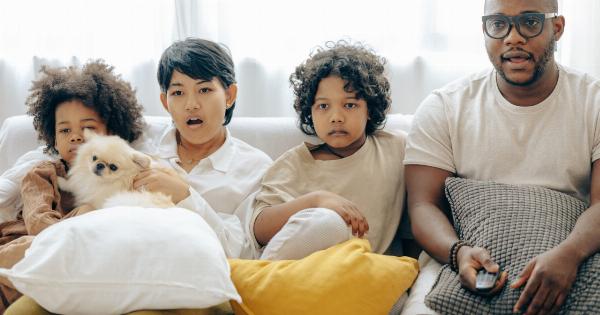Co-sleeping, also known as sharing a bed with your baby, has been a controversial topic among parents for decades.
While some see it as a way to foster a close bond with their child, others argue that it may not be the safest or most beneficial option for the baby. In this article, we will explore the potential risks and drawbacks of co-sleeping, and why it may not be the best choice for your little one.
1. Increased risk of SIDS
One of the most significant concerns associated with co-sleeping is the increased risk of Sudden Infant Death Syndrome (SIDS).
Studies have shown that sharing a bed with your baby can raise the chances of SIDS, especially if the parents are smokers, have been drinking alcohol, or if the baby is placed on a soft mattress or covered with heavy bedding. The close proximity exposes the baby to potential suffocation hazards, such as accidental overlaying or entrapment between the mattress and the bed frame.
2. Disturbed sleep patterns
Co-sleeping can often disrupt both the baby’s and the parents’ sleep patterns.
Babies who sleep in their parents’ beds tend to wake up more frequently during the night, as they may become reliant on the presence of their parents to fall back asleep. This can lead to long-term sleep problems for both the baby and the parents, with increased fatigue and irritability during the day.
3. Limited independence
Another drawback of co-sleeping is that it can hinder a baby’s ability to develop independence and self-soothing skills.
When a baby shares a bed with their parents, they may become overly dependent on parental presence and may struggle to learn how to fall asleep and soothe themselves in their own sleep environment. This can become a challenge when the baby needs to transition to sleeping in their own crib or room later on.
4. Reduced parental intimacy
While co-sleeping may create a sense of closeness between the parent and the baby, it can also lead to a decline in the intimacy between the parents.
The presence of the baby in the bed can limit the privacy and alone time that parents need to maintain a healthy relationship, leading to potential strains on their emotional connection.
5. Increased risk of accidents
There is an increased risk of accidental injury or harm to the baby when co-sleeping. This includes the possibility of unintentional rolling over onto the baby, accidental suffocation from pillows or blankets, or even the baby falling off the bed.
Even well-intentioned parents can have occasional lapses in awareness during sleep, putting the baby’s safety at risk.
6. Mixed messages about sleep boundaries
Sharing a bed with your baby may send mixed messages about appropriate sleep boundaries. While co-sleeping may be practiced for the first few months, the transition out of the parental bed can become challenging.
Establishing consistent sleep routines and boundaries from the beginning can help set the stage for healthy sleep habits as the baby grows older.
7. Impact on parental sleep quality
Co-sleeping can have a negative impact on the quality of sleep for parents. The constant awareness and worry about the baby’s safety can lead to heightened arousal and lighter sleep, resulting in poorer sleep quality overall.
This can have a cascade effect on the parents’ mental and physical health, as well as their ability to function effectively during the day.
8. Increased risk of dependency
Co-sleeping may inadvertently foster a stronger sense of dependency in the baby.
The physical closeness and instant comfort provided by co-sleeping may hinder the baby’s development of independent coping skills and may slow down the process of self-soothing and self-regulation. Encouraging safe sleep practices in their own sleep space can promote healthy independence and autonomy in the long run.
9. Limited adult sleep space
Sharing a bed with a baby often means limited space for the parents to move and sleep comfortably. This can lead to disturbed sleep for the adults, as they may find themselves constantly adjusting their sleeping positions or waking up with discomfort.
The lack of personal space can also make it challenging for parents to relax and get the rest they need.
10. Potential strain on the marital relationship
Lastly, co-sleeping can place strain on the marital relationship between parents.
The constant presence of the baby in the bed can disrupt the couple’s ability to have quality alone time, which can be essential for maintaining a strong relationship. It is crucial for partners to have time alone to connect and nurture their own emotional bond, which may be compromised by co-sleeping arrangements.





























